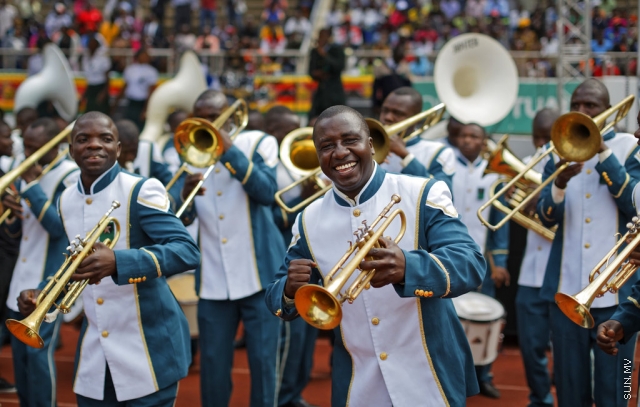
HARARE, Zimbabwe (AP) — Zimbabweans converged on a stadium ahead of the presidential inauguration Friday of Emmerson Mnangagwa, who will become the country's second leader since independence from white minority rule in 1980.
Mnangagwa, fired earlier this month as vice president, is poised to lead after the resignation of 93-year-old Robert Mugabe, who succumbed to pressure to quit from the military, the ruling party and massive demonstrations.
Mnangagwa, a former justice and defense minister, was a key Mugabe confidant for decades until they fell out because of the presidential ambitions of Mugabe's wife, Grace. Despite his long association with the government that has presided over Zimbabwe's decline, including economic collapse and human rights abuses, Mnangagwa has promised democracy and reached out to other countries for help.
Mugabe was the world's oldest head of state when he quit. In the end, he was isolated and showing few of the political skills that kept him in power for 37 years and made him a prominent but polarizing figure on the world stage.
Mugabe will not attend Friday's swearing-in, and ruling party officials have said he will remain in Zimbabwe with their promise that he is "safe" and his legacy as a "hero" will stand after his fight for an independent Zimbabwe.
Some people ahead of the inauguration began to dance in the stadium stands. Banners erected in read "Dawn of a new era" and "No to retribution," even as human rights activists began to report worrying details of attacks on allies of the former first lady and their families.
Tendai Lesayo held a small Zimbabwean flag as she sold drinks from a cooler outside the stadium. She said she would welcome a fresh start, saying "life now is impossible."
Elsewhere in the capital, long lines formed outside banks, a common sight in a nation struggling with cash shortages and other severe economic problems that the new president will have to confront.
Sharon Samuriwo sat on a ledge, watching the inauguration crowds pass by. She said she hoped Mnangagwa would learn from the errors of his predecessor, though she acknowledged that the path ahead for Zimbabwe is unknown.
Still, "after 37 years, we've got someone different."